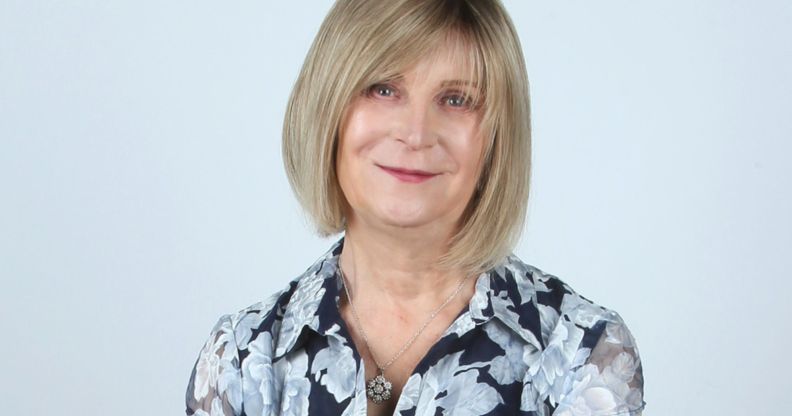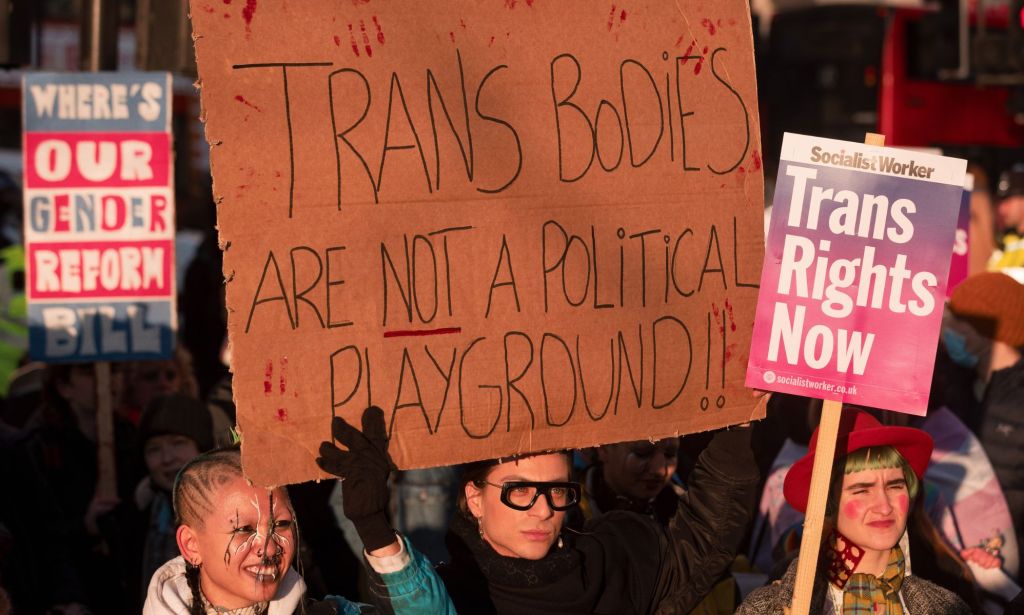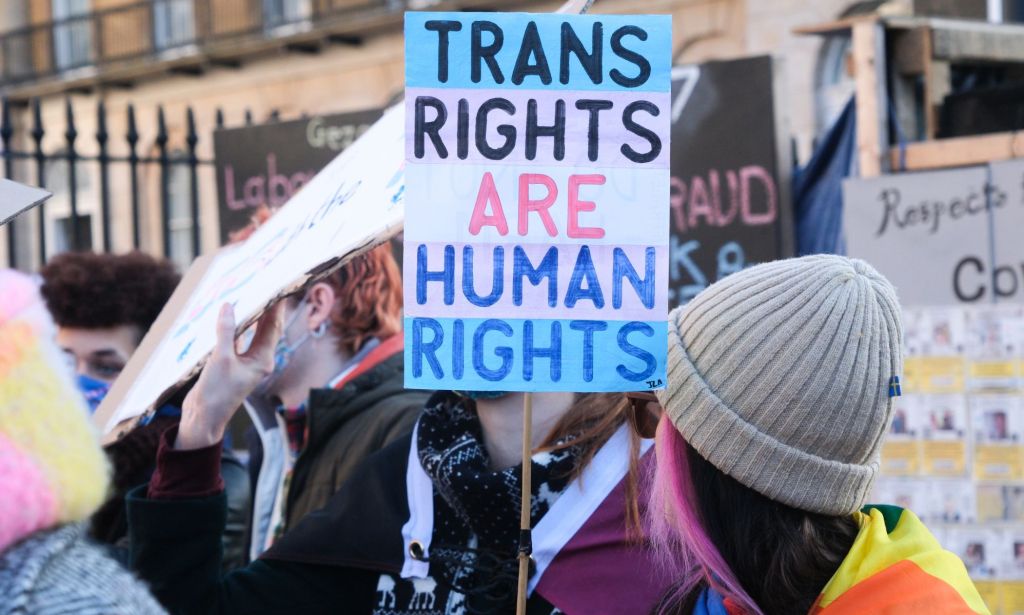Trans woman explains in simplest terms why UK gender law is an ‘abhorrent mess’

Steph Richards, founder of TransLucent, says she went through a “10 year struggle” to transition in the UK before eventually getting a Gender Recognition Certificate. (Steph Richards)
The UK imposes a cruel double standard on trans people when it comes to gender recognition law, says a woman who has been through the process.
Steph Richards wanted to get a Gender Recognition Certificate (GRC) so that the gender on her death certificate would reflect her authentic self, and because she had “really bad” experiences being misgendered in medical settings.
A GRC allows trans people to be recognised properly on birth, death, marriage and civil partnership certificates. Across the UK, trans people must submit a body of evidence, including a medical diagnosis of gender dysphoria, before they can obtain one.
In December 2022, Scotland passed legislation that would have removed the medical requirement, among other efforts to make the process simpler and more accessible. In January, the UK government blocked the reform in what’s been described as an unprecedented attack on devolution.
Richards describes the current system in the UK as a “mess”.
“In regards to getting a medical diagnosis, that’s abhorrent,” she tells PinkNews. “Gender dysphoria is not a mental illness. The NHS, the World Health Organization and many other professional bodies say exactly that.

“This has been the case for a decade or more. Getting a diagnosis of gender dysphoria is understandable in regards to wanting surgery because I think there’s precedence in cosmetic surgery.
“For example, someone who is only 30, she doesn’t want kids and she wants to be sterilised. They won’t do it without a going into the psychiatrists – so I can see it in regards to change in your body, to protect surgeons. In regards to a piece of paper, you most certainly don’t.”
Under Theresa May, it was government policy to reform the Gender Recognition Act to do away with the need for a medical diagnosis. This promise was swiftly dumped under Boris Johnson, and successive prime ministers have doubled down on his trans-hostile rhetoric.
“It is absolutely wrong with the current [Gender Recognition Act], you have to get a diagnosis of gender dysphoria,” Richards says.
“People know who they are. We would never ask LGB people to go and get a certificate saying someone’s gay. They know who they are. Trans people know who they are. I’ve known since five, six years of age.”
Richards says the actual Gender Recognition Certificate (GRC) application was mostly straightforward. However she ran into a hurdle when she found her psychiatrist was not on the approved list of medical professionals approved by the UK government for a gender dysphoria diagnosis for a GRC, something that left her feeling “quite disconcerted”.
For Richards, the process of having her gender affirmed was intrinsically linked to her “10-year struggle” to access costly gender-affirming healthcare in the UK.
Some trans people crowdfund or go abroad to get gender-affirming care because of the years-long waiting lists at NHS gender clinics – a life-altering wait for many in the community.
Richards spent approximately £30,000 on treatments – including electrolysis, hormone therapy and surgery – through private healthcare providers. The NHS and the government is being urged to tackle wait lists to prevent people from being forced to go private – or from being priced out of healthcare entirely.

The decision by the Conservative government to block Scotland’s Gender Recognition Reform bill has been met with outrage from Scottish politicians, the trans community and allies.
The bill would mean the age someone can legally change their gender in Scotland would be lowered from 18 to 16, there would be no longer a need for a medical diagnosis of gender dysphoria, and the requirement for living in your affirmed gender would be dropped to a couple of months from the current two years.
The legislation has caused constitutional friction with Westminster since it was passed by Holyrood in December. The UK government used Section 35 of the 1998 Scotland Act to veto the bill – it’s the first time Westminster has used this power since the Scottish parliament opened in 1999.
Steph wasn’t surprised by the Tory government using trans people as ‘political footballs’.
“It’s been a kind of rollercoaster for the trans community in general to see [the GRR bill] go through. Scotland gave us so much hope,” she says. “What’s happened since, the Section 35, is awful, terrible for trans people in Scotland to think they had at last got relief from this dreadful act, [only] to see the conflation by the Tories.”
She remembers how the Conservatives “made it very clear” during GRA consultations in 2017 and 2018 that the bill would not in any way impact the Equality Act, which among other things enshrines trans people’s rights to access single-sex spaces. The UK government cited concerns about the Equality Act, women’s spaces and equal pay in blocking the reform bill – concerns which don’t hold much water.

Steph thinks the real reason is far simpler.
“We’ve been weaponised,” she says. “I think history, in another 30, 40 years, will probe what they’ve done to trans people, what they did to gay people.”
She highlights how, in the modern day, people look back in horror at the persecution of Alan Turing, the gay mathematical genius and WWII codebreaker. Turing was prosecuted and sentenced to chemical castration for being gay – he later died by suicide.
One day, she hopes people “look back [on] and think: ‘how did we do that to such a small amount of people?'”.

